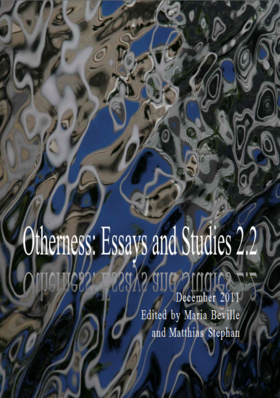
This third issue, and second general issue, of the journal Otherness: Essays and Studies, brings together a series of papers that explore the entangled concepts of Other and Self from various angles with an emergent focus on literature. This was not the intention of the editors on planning the issue, but instead, a response to the significant amount of valuable contributions that we received on the subject. The papers selected for publication here individually contribute to discussions of Otherness in relation to representations of alterity in poetry, prose, theatre and film. Combined, they participate, in their varied theoretical approaches, in the collective discourse on Otherness promoted by our research network. As such, they actively support the ongoing discussion of how the Other might be negotiated from an interdisciplinary perspective within the humanities today.
This issue, thus, re-negotiates a space for Otherness in literary, dramatic and film criticism. In recent decades, critical studies by postcolonialist, poststructuralist, and psychoanalytic theorists have evidenced the need firstly, for academic discussion to move toward a consideration of the idea of the radical other and the ways in which it is represented, and secondly, to raise important questions relating to how we can work to change the contemporary status of Otherness, transforming the ways that we can ethically relate to ‘difference’. Responding to these theoretical concerns, problems discussed here, range from the silencing the subaltern in the context of post-apartheid South African historiography, to the role of gender in the fiction of Virginia Woolf and Paul Howard, and the significance of the representation of the Other on the theatrical stage.
While the papers are largely directed toward the study of literature in a broad sense, they also vary significantly. For example, twentieth century American poet, Robert Lowell, is given significant consideration in Dominic Rainsford’s article on the idea of collectivity of literature. Rainsford questions how understanding literature as such may affect the balance between the private and the public that defines poetry in so many ways. On a different, yet equally exciting literary topic, Danielle Brownburger’s contribution explores female sexuality in the Victorian period as it is played out in representation of cuckolded men as monstrous in examples of Gothic writing. Concerned with figurations of the body and gender related issues in the ‘beat’ poetry of Diane di Prima, Gillian Thomsen’s paper examines an important aspect of literary Otherness in considerations of female artistic identity within a largely male oriented literary movement. Di Prima, notably, suggested new forms of signification via reconsiderations of the bodily, appropriate to the changing status of feminine identity in an important cultural period in the United States.
Following a similar thread, Tomasulo’s reading of Jean Rhys’s work, depicts the problem of attempting to undo dualisms of mind and body, and of subject and object in literature. While coming from a divergent perspective, Florina Florescu discusses Otherness in terms of post-Communist trauma in the film 4 months, 3weeks, 2days. With a focus on the issue of abortion, Mungius’s film is evaluated by Florescu for its portrayal of a ‘genuine chronicle of humiliation, disgust, hatred, and abjection on the currently still underestimated theme of ‘unmotherhood’’. Taking an alternative approach to trauma, Marino’s article takes up the concept of ‘sacrilegious traumaliga’ in his reading of contemporary literature, film and music videos.
This is just a selection of some of the topics presented in this discerning compilation of articles. Through the dynamic that exists between their united focus and their multifarious perspectives, it is revealed that their attempts to articulate Otherness are shaped by a sense of urgency to find insight into something that has for so long remained an elusive topic. The abstract representation of the Other in many examples of literature and the arts is an important point of concentration for their combined discussion, particularly as we see it in modern texts which consistently seek out new ways to give a voice to that which is unspeakable or unrepresentable.
Many thanks to our contributors.